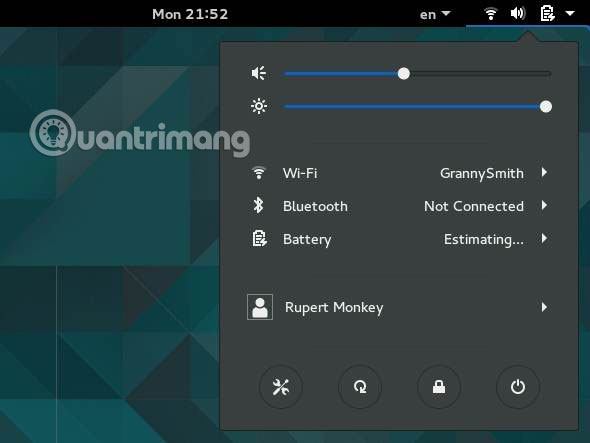Is CentOS or Ubuntu the best web hosting server operating system?
With so many available Linux distributions, choosing a suitable distro for your home computer is not easy. Choosing a Linux distribution for the server is even more difficult. Servers run 24 hours a day and often perform complex tasks, so it's important to choose a distribution you can trust.
Ubuntu is one of the popular options, but not the only one. CentOS is another great option thanks to the stability and reliability of this operating system.
Ubuntu is the best choice for most people, but in some cases you may want to consider CentOS. So is CentOS or Ubuntu the best web hosting server operating system? Let's find answers with TipsMake.com through the following article.
Compare 2 server operating systems: CentOS and Ubuntu
- What is CentOS?
- CentOS and Ubuntu Server
- Installation and configuration
- Performance of CentOS compared to Ubuntu
- Use laptop
- Other aspects to consider
What is CentOS?
If you've ever read about Linux, you might know a bit about Ubuntu. Ubuntu has an easy-to-use Debian-based distribution and is one of the most widely used versions of Linux today.
On the other hand, CentOS is not very popular. This distribution is based on Red Hat Enterprise Linux (a paid product). CentOS is open source software and is available for free.

You cannot get the same support as Red Hat's service, because you do not pay for this part. However, CentOS is supported by the community, so you are not alone if you encounter problems.
CentOS and Ubuntu Server
In addition to Ubuntu's widely used desktop version, there is another server version. This distribution is named Ubuntu Server. One of the main differences between the two versions is that Ubuntu Server does not have a graphical user interface by default. If you want to learn more, read the article: Ubuntu version for TipsMake.com server for more details.

Because Red Hat Enterprise Linux is widely used, CentOS also has a reputation for being a secure and stable operating system. These are the main factors when choosing a distribution for the server. CentOS is also highly customizable, very convenient for removing services that you no longer need.
Ubuntu receives updates more frequently than CentOS and usually has new packages available. However, this is double-sided. Frequently updated Ubuntu means that it will receive new features sooner, but also encounter new bugs first. CentOS's slower update cycle helps maintain stability, but users will likely not quickly get important security updates.
Winner : CentOS wins Ubuntu in just a few seconds thanks to its reliable stability.
Installation and configuration
Both CentOS and Ubuntu provide reasonable installation procedures, but each process has different strengths. With Ubuntu Server, you don't have a graphical interface, but the implementation is still easy for most people. Ubuntu aims to make the installation simple for everyone, while CentOS wishes to make this process quick and easy for system administrators.

If you use the Ubuntu version on the desktop for your server, configuration is quite easy. Installing software, adjusting settings, enabling and disabling services is relatively easy. CentOS also offers a powerful set of configuration options, although it is using a number of different applications on the back-end.
Configuring CentOS or Ubuntu via command line is different. You can find some configuration files in different places and the main difference is in the package manager used by each distribution. Ubuntu uses Apt and CentOS uses Yum. Using both of these package managers is quite easy, but there are some big differences between them.
Winner : Ubuntu wins here thanks to the ease of use and the number of documents you can find online.
Performance of CentOS compared to Ubuntu
If you are running applications or services that use a lot of resources on the server, operating system performance will have problems. Although Linux distributions will have nearly the same performance as other operating systems, some distros still have their own advantages.
By default, Ubuntu Server is making it more compact and this gives it certain advantages. You can adjust CentOS to increase performance if you want. According to Phoronix.com 's report , Ubuntu has a couple of victories, but most of it is a bit worse than CentOS when considering performance.
Winners : CentOS and Ubuntu merge in this respect because the performance difference in the tests is negligible.
Use laptops with CentOS and Ubuntu
Although the main purpose of this article is to compare CentOS with Ubuntu when using it for the server, both distributions are also the desktop operating system. If you regularly use one of these distributions on the server, you may also be more comfortable running it on a laptop.

This is where you will see some more obvious differences between the two distros. CentOS 7 uses Linux kernel 3.10, while Ubuntu 18.04 uses Linux kernel 4.18. The newer kernel provides support for newer hardware.
If using a relatively new laptop, you might find CentOS not recognizing certain hardware. In some cases, you can find and install drivers for that hardware yourself, but this can be a bit difficult. In contrast, Ubuntu will have much better support for newer laptops.
On the other hand, if you choose a distribution to install on ThinkPad that has been in use for several years, CentOS can work very well, both at the beginning and after the update. This is when stability that CentOS brings is especially useful.
Winner : Ubuntu wins this category thanks to the amazing amount of hardware it supports.
Other aspects to consider
If you use a virtual private server (Virtual Private Server) from a company like Linode or DigitalOcean, the installation is as easy as providing a new server. You don't need to worry about the installation process, or whether certain hardware is supported.
The size of the community that supports each distribution is also worth noting. Due to the widespread popularity, Ubuntu has more community archives available. Ubuntu also has more users, meaning there are likely many others who have similar problems to you and are willing to share how they fix those problems.
CentOS has less market share than Ubuntu, but the documentation provided by Red Hat Enterprise Linux can help somewhat when something goes wrong.
If you still have trouble making a choice after reading the above comparison, think about which distribution makes you more comfortable. You will use this distribution regularly, so if you choose, go with the distro you are more familiar with. That familiarity will make day-to-day maintenance much easier.
What if you don't have much experience with CentOS or Ubuntu? Ubuntu is a great choice for less experienced or first-time Linux users. Even better, TipsMake.com has instructions on how to experience Ubuntu on a Windows computer. Readers can refer for more details.
Wish you soon find the right choice!